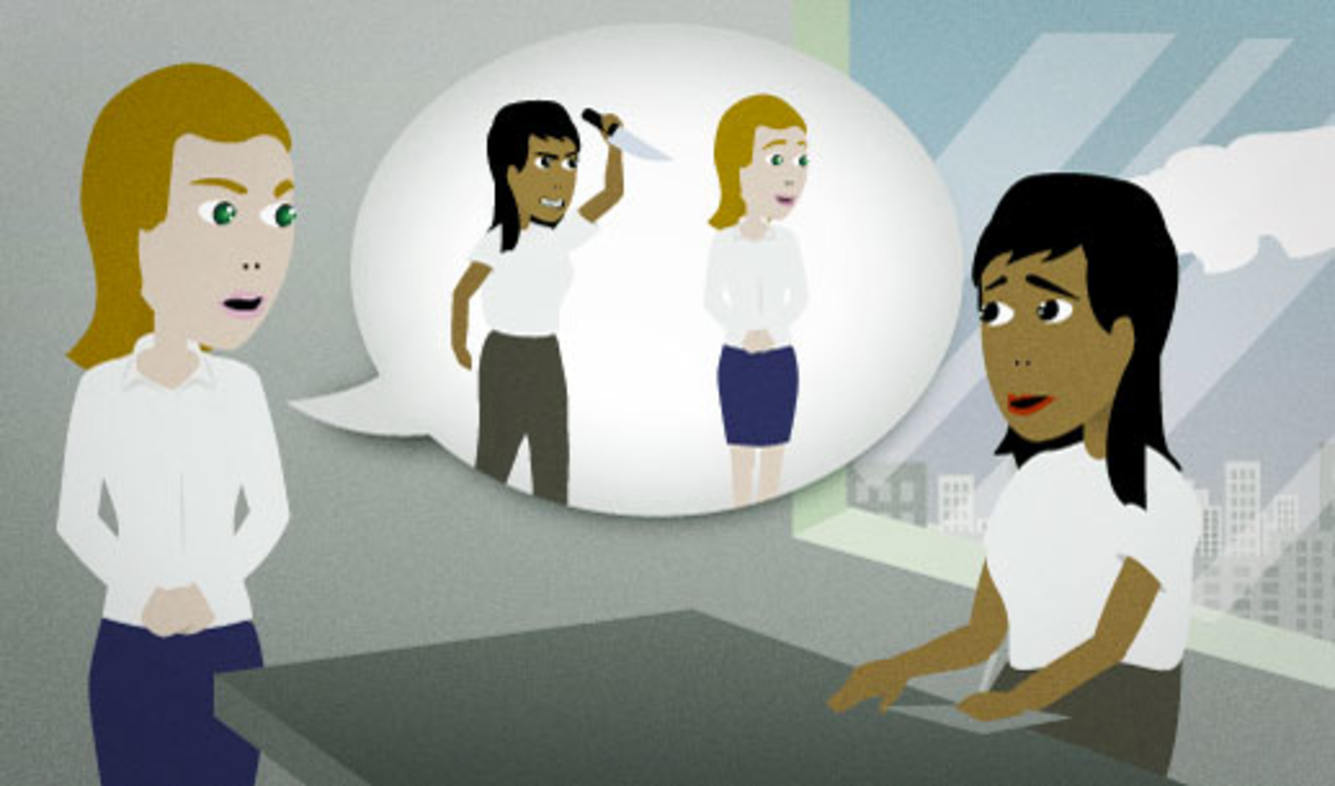“After everything I've done for you, you turn around and stab me in the back like this?”
You have a friend who you've helped out in the past. Now you find out that she's applied for a job that you were trying to get, without telling you. You feel betrayed, so you say this.
After everything I've done for you, you turn around and stab me in the back like this?
Want Video and Sound? Follow us on YouTube

After everything I've done for you, you (do something bad)?
You can say this to someone who you've helped out a lot, when they do something like complain about you:
A: You never take me out to eat.
B: After everything I've done for you, you complain about me not taking you out to eat? I can't believe you.
Or if someone lies to you:
After everything I've done for you, you're going to sit here and lie right to my face!?
This is a really emotional, dramatic expression. Use it when you feel really annoyed or angry with someone.
(someone) turns around and (does something)
This phrase describes a person doing something unexpected. For example:
She gave it to him for free, and then he turns around and sells it for a thousand dollars.
I saw her break it with my own eyes, and then she turned around and acted like she didn't know anything about it.
It's often used for unexpected bad actions, but it can also introduce surprising positive things as well:
He was shooting horribly until half time. Than in the second half, he turns around and scores 24 points.
stab (someone) in the back
"Stabbing someone in the back" means betraying them. In other words, you act friendly toward them but secretly do things to hurt them.
Some examples of "stabbing someone in the back" include:
- sleeping with your close friend's girlfriend or boyfriend
- revealing an embarassing secret that someone asked you not to tell
- taking a job that you know that another person wanted and that they told you about
The phrase "stab ___ in the back" is very emotional and dramatic. People actually don't use it very much to directly confront someone. It's more common to use "stab ___ in the back" when telling stories about the mean things that people have done to you.
We call a person who does this "a backstabber".
